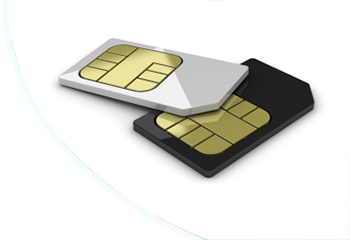International roaming charges can take a big hit on your bank balance if you’re not careful. Every provider will have their own roaming charges and set rules for how it works and where, so it’s important that you know what you could be getting charged while away.
We want to make things a bit easier on you, so we have put together this guide to help you figure out what your network’s roaming charges are, what other networks’ charges are, and how you can avoid overspending while on holiday.
What are roaming charges?
Roaming charges are additional fees set by a network that is applied when you connect your phone to a foreign network while travelling overseas. These charges can apply to calls, texts, and data usage. It does not apply if you connect to a Wi-Fi.
The amount of roaming charges you will be charged depends on your mobile phone plan and the country you are visiting.
Some networks and plans include free roaming in certain countries, while others charge a premium for all roaming.
How much are roaming charges?
The charges vary between networks as there isn’t one set standard for how much they should or could charge.
In the EU, there are roaming regulations that mean you can use your monthly allowances of calls, texts and data while outside your home country for free. Unfortunately, since Brexit came into place in January 2021, UK citizens no longer receive free roaming in the EU.
If you’re travelling outside of the EU, the charges will be even higher as they are not covered by any specific law that keeps networks from charging rather costly rates.
There are a couple of ways you can be charged. You could be charged either a daily rate, or charged per text, minute or Mb of data used.
With that, let's take a look at how much the roaming charges are for some UK networks.
Vodafone roaming charges
Vodafone’s roaming policy can be a bit tricky to comprehend as they split their charges into international zones.
Depending on whether you are a pay-monthly customer or pay-as-you-go, you will be on different rates.
Vodafone categorises most EU countries as Zone B. It is important to check their website to see what zone the country you are visiting is in. Countries in Zone A do not incur roaming charges. Countries in any other zone will have charges.
Pay-monthly
For pay-monthly users, if you are travelling to any of the 49 EU countries that are listed in Zone B you will need a Vodafone European Roaming Pass which costs £2.25 a day.
If you are on a Vodafone Xtra Plan you may have EU roaming included, so be sure to check your plan and account before travelling.
Pay-as-you-go
PAYG customers will need to purchase one of their eight-day Europe Extra add-ons. This will limit the costs of data, texts and phones to £10 for 3GB of data, whereas without it, the data on its own will cost £7.
Three roaming charges
Three has a service called Go Roam which covers 71 international destinations and will cost significantly less than standard roaming charges.
For EU roaming, it will cost £2 a day, while in select countries outside of Europe, including Australia, New Zealand and the US, it will cost £5 a day.
O2 roaming charges
O2 is renowned for being the best network for roaming, winning the 2023 Uswitch Award for it. This is because they don’t charge customers anything to use their calls, texts and data when travelling to over 40 EU countries.
There is a 25GB fair use cap, though, which means if your plan comes with 25GB of data or more, if you use over that 25GB you could be charged an additional £3.50 per GB.
EE roaming charges
EE was one of the first major UK networks to reintroduce charges when the UK left the EU. They charge £2 a day to use data, texts, and minutes in any of the 47 countries within their EU roaming zone.
They also offer a Roam Abroad Pass, which for an extra £10 a month, lets you use your data, texts and minutes in the EU, USA, Canada, Mexico, Australia and New Zealand.
GiffGaff roaming charges
GiffGaff allows you to use your data, texts and calls the same way you do in the UK in 38 EU countries. You can check out which countries are included on their website.
There is a data roaming cap, which is set at 5GB. You’ll be charged 10p per MB while roaming if you go over that 5GB cap.
For PAYG customers, you can use credit instead, which will be charged at their PAYG UK rates while you roam in the select EU countries.
Sky Mobile roaming charges
Sky Mobile offers a Roaming Passport Plus for £2 a day. This lets you access your data, calls and texts in over 55 countries, including the EU, USA, and Australia.
For other countries not included in their list, you will be charged the ‘Rest of the World’ roaming charges.
BT Mobile roaming charges
BT Mobile offers a service called Roam Like Home. It is available to all BT Mobile customers at no extra cost and covers 45 countries and territories, which are also split up into Zone 1a and Zone 1b.
With Roam Like Home, you can use your texts to message any number in the UK or to anyone in other Roam Like Home countries, take and receive calls from other devices in Roam Like Home countries, and use your data.
The zone split is in place for if you go over your allowance. Exceeding your allowance in Zone 1a will cost 45.72p a minute for calls, 14p per message for texts, and 13.06p per MB for data.
In Zone 1b, it's 38p a minute for calls, 11p per message for texts, and 10.83p per MB for data.
iD Mobile roaming charges
Roaming comes as standard on all iD Mobile plans in 50 countries across the EU. You can use up to 30GB of data while roaming abroad.
How do I avoid expensive roaming charges?
There are a number of ways to avoid overspending while abroad. It is most important to check your provider to see what their specific roaming charges are and the terms and conditions, including all the fine print.
If you want some sure-fire ways to keep your costs down, here are a couple of ideas:
- Get a local SIM – If your phone is unlocked, look into getting a local network SIM card so you can benefit from much cheaper data usage, calls and texts. This is particularly good for anyone travelling outside the EU.
- Free Wi-Fi – Utilise free Wi-Fi as much as possible. Check the restaurant you’re dining at or find the local McDonalds. They always have free Wi-Fi.
- Use calling apps – Apps such as WhatsApp, Skype, Facebook Messenger or FaceTime lets you make calls and send texts/messages over Wi-Fi. Use these instead of your call and text allowance.
- Turn off roaming – It’s the most drastic option but if you are really worried about the charges, you can turn roaming off. Just go into your phone settings and turn off data roaming.










